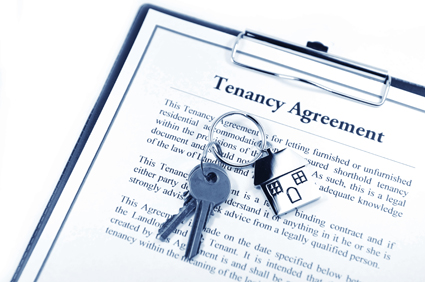- Home
- >
- Tenant Renting Guide
Tenant Renting Guide
If you are moving to London and hoping to rent a property in the Capital, it's good to know what you can expect if you are renting through a professional letting agent. Here are some helpful tips about renting in London:
Finding the right property
You can search through our database of London properties to give you the latest listings. Once you've found a property you think may be suitable, you can email us, request a call back or phone us to find out more information and arrange a viewing. If you're planning on moving into a property, knowing what documents you need and what the process is can be daunting. Read our renting guide for tenants, which helps explain the process.
Tenancy
 Rental contracts usually last between one and three years for long-term lets. The Tenancy Agreement is a contract that will outline the law relating to the tenancy and will include any additional details agreed by you, the tenant and the landlord. Once the contract has been agreed and signed by both parties, it will be exchanged and is binding for the period agreed.
Rental contracts usually last between one and three years for long-term lets. The Tenancy Agreement is a contract that will outline the law relating to the tenancy and will include any additional details agreed by you, the tenant and the landlord. Once the contract has been agreed and signed by both parties, it will be exchanged and is binding for the period agreed.
There are two main types of tenancies: AST (Assured Short hold Tenancy), which is the most common type of tenancy. This is mainly used when rents are below £100,000 a year and the tenant is not a company.
Contractual Tenancy is where the rent is over the amount of £100,000a year, or the tenants are a company.
Identification and references
As part of the UK Money Laundering Legislation, you must legally provide a copy of your identity. This can be a copy of your passport or driving licence (photographic version) and a copy of a recently dated utility bill. In the event you are not able to provide any of the above, you must contact us to find out what alternative documents can be used.
It is a requirement to obtain references to see if you are suitable to rent the property. These will include bank, employer and credit references. Professional referencing agencies are often used to obtain the references.
Holding deposit
Once you have found a property you would like to move in to, we will ask for a holding despot, which is usually one to two weeks' rent. On some occasions, this may be more than two weeks. This is to secure the property, stop other people from viewing it and from it being actively marketed by the agent.
If the tenancy goes ahead, the money will then be deducted from the first months' rent. However, if for any reason you do not move into the property (such as if you fail a credit check or decide you no longer want the property) your deposit will not be returned, so it is important not to make an offer on a property and pay a deposit unless you are sure you want it.
The holding despot is necessary to show that you are serious about moving into the property on the agreed date. It enables us to move forward with references, allowing us to take the property off the market, so no further interest is generated and so that the Landlord does not lose income.
Rent
Rent is usually paid in advance, on a monthly or quarterly basis. Once the initial payment has been made, you will make all following payments via Standing Order. Therefore it's necessary to complete a Standing Order Mandate before you move into the property. The money will be debited from your account three days before the date the rent is due, making sure it reaches the landlords bank account on the correct date.
Charges
There are necessary charges for covering the cost of preparing the Tenancy Agreement, obtaining references and the fee for the tenancy deposit scheme. The following charges cost:
- Tenancy Agreement: £160 (including VAT)
- Full Credit Check: £84-£100 (including VAT) – this is the price per applicant.
- Tenancy Deposit Scheme: £20 (including VAT)
Deposit
The deposit is the equivalent of at least six weeks' rent and is required before you move into the property, subject to terms of your tenancy agreement. It will then be held until the end of your tenancy and cannot be offset against the final month's rent of your contract.
During your stay at the property, the deposit will be held in a designated client's deposit account. Deposits are registered with a deposit protection scheme within the first 14 days after they it hasbeen paid, giving you peace of mind.
At the end of your tenancy there will be a checkout report and the deposit will be returned once this report has been completed, the property has been cleaned and the landlord has confirmed he is happy to release the deposit. It will reach your bank account in full, unless there have been agreed deductions, within 10 working days.
Moving in and checking out
 When you first move into the property, it's important to check the inventory. This is to record the condition that the property is in, as well as the contents that are included. A copy will be given to both yourself and the landlord, and will need to be signed by both parties. It's important to always check the inventory, making sure you note all the items listed. This can prevent potential problems with the landlord when you're moving out, once the tenancy has finished. The landlord will pay for both the inventory and check-in procedure.
When you first move into the property, it's important to check the inventory. This is to record the condition that the property is in, as well as the contents that are included. A copy will be given to both yourself and the landlord, and will need to be signed by both parties. It's important to always check the inventory, making sure you note all the items listed. This can prevent potential problems with the landlord when you're moving out, once the tenancy has finished. The landlord will pay for both the inventory and check-in procedure.
When you first move in, an independent inventory clerk will go over the inventory with you, before checking you in. When the tenancy has finished, a check out report is created which the tenant has to pay for. The cost of this varies depending on the size of the property and how many bedrooms are in it.
At the start of the tenancy, you will be given two sets of keys, which you will be responsible for.
Utility bills
During your tenancy you will be responsible for paying all utility bills for the length of your stay, unless stated otherwise in the tenancy agreement. Utility bills include the cost for using water, electric, gas, telephone, internet, and TV licence. You will also be required to pay council tax during your stay. The cost of council tax will vary depending on the property size and the tax band you fall under. If you're a sole occupier of a property, you may be entitled to a council tax discount. Your letting agent will be able to tell you which council to contact for more information.
Insurance
The landlord will be responsible for only insuring the building and furniture provided at a property and not any personal contents at the property. We recommend that you insure your own personal contents against risks such as fire, flooding, theft and any other damage which might occur.



